In factories, health and safety regulations are there to protect workers. Foley and Baugh will help you comply with those regulations.
Under the Health and Safety at Work Act 1974, enforced by the Health and Safety Executive (HSE), employers have a legal duty to safeguard not only their employees but also contractors and visitors. For factory operators, understanding and properly applying these regulations is essential to creating a safe and productive workplace.
A thorough risk assessment is the foundation of any effective safety system. Employers must identify potential hazards, whether related to machinery, hazardous substances or ergonomics, and evaluate how these risks could affect their workforce. Appropriate control measures, such as machine guarding or adequate ventilation, should then be implemented, with assessments reviewed regularly to keep pace with changing operations or new risks.
Machinery is at the heart of most factory processes, making compliance with the Provision and Use of Work Equipment Regulations 1998 (PUWER) essential. Employers must ensure that all equipment is suitable for its purpose, properly maintained, and equipped with safety features such as emergency stops. Regular inspections and thorough operator training significantly reduce the risk of incidents such as entanglement or crush injuries. Where risks cannot be fully eliminated, the Personal Protective Equipment at Work Regulations 1992 require the use of suitable PPE, including hard hats, safety goggles and high-visibility clothing, all of which must be provided by the employer free of charge.
Staff should also be trained in the correct use and care of their protective equipment.
For workplaces handling chemicals, compliance with the Control of Substances Hazardous to Health Regulations 2002 (COSHH) is critical. This involves proper storage, labelling and disposal of substances, supported by up-to-date safety data sheets. Adequate ventilation and reliable spill containment procedures are vital to prevent exposure and maintain a safe environment.
Training and communication are also key to building a strong safety culture. Ongoing training helps employees stay up to date with essential safety procedures, from manual handling techniques to fire evacuation plans. Clear signage, regular briefings and easy-to-use reporting systems encourage awareness and accountability across the workforce.
Factories must also have robust fire safety measures in line with the Regulatory Reform (Fire Safety) Order 2005, including extinguishers, alarms and clearly marked escape routes. Accessible first-aid kits and trained first-aiders are another legal requirement that ensures immediate support in the event of an accident.
By following these regulations and maintaining high standards, factory operators can reduce workplace risks, stay compliant and protect their most valuable asset: their people. Putting safety first benefits everyone, fostering a more efficient and resilient business.
For tailored health and safety advice and training for factories in East Anglia, get in touch with Foley and Baugh today.
Contact us today on 01493 659026 or email hello@foleyandbaugh.co.uk














